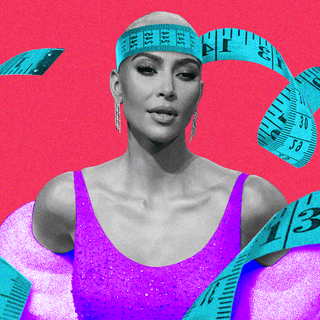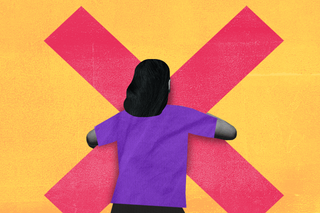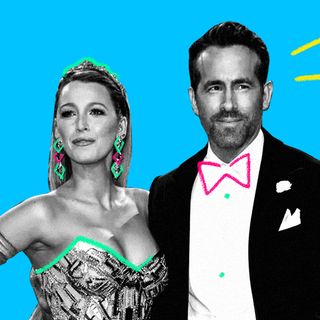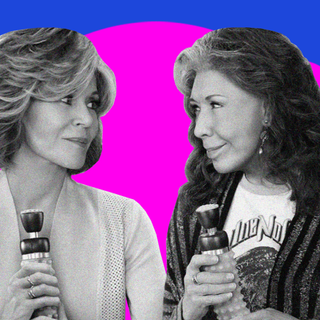
Why We Should be Wrong More Often
Making errors is crucial, instructive, and only natural.

“Imagine all of our lives are like our own individual jigsaw puzzle.” Irish comic Daniel Sloss floats this premise mid-way through his show. We’re going through life, trying to make the pieces fit, gleaning whatever we can from experiences and lessons we’ve learned. The dream is to create the best picture — all elements in place. “…but the thing is everyone has also lost the box for their jigsaw. So none of us know what the image we’re trying to make is, we’re just confidently f***ing guessing.”
The analogy touches upon something so vulnerable, so chaotic. The pursuit of meaning and reason is hampered by one fatal fact: that we’re all just shooting our shots in the dark. But what makes this adventure sport interesting is an unflinching desire to be right nevertheless. A whole lot of us saunter (and some hustle) through life thinking we are, by virtue of our gold standards of existence, right — about everything. Or, at least, we strive to ensure that everything said and done isin keeping with the invisible scale of “right” and “wrong.” The version of events someone remembers is correct; the political and social beliefs they hold are the gospel truth and nothing less; their understanding of facts remains unrivaled. Right is a state of mind, an unconscious assumption that demands no second thought.
So here we are, casting a big, white light on this fallacy that has run too wild and too freely. Wrongness currently exists as a social outlaw — but it shouldn’t. People are wrong all the time.
From the curve global economies will adhere to, the chequered demands within the job market, thebrand of wellness consumers will pick, andhow quickly will AI change our ways of being — much has been said and much of it has proven wrong. Ironically, studies have ruthlessly shown experts are probably the worst at predicting things.
Then, to be wrong is a fundamental human condition. One may argue that just because people’s track record isn’t that great, it doesn’t justify wrongness. We must aspire to be right, to be better. But this aspiration can co-exist with accepting the humanity that lies in errors and mistakes.
Related on The Swaddle:
The Pressure To Always Say the ‘Right’ Thing Affects the Way We Communicate
Moreover, neat binaries of “right” and “wrong” overlook important context and human fallibility. No decision, opinion, or belief is invariably wrong; time and circumstances hold the rope to determine a million variables at any given point. The judgment of rightness only comes retrospectively; making this pursuit a zero-sum game at best. We are human when we make mistakes; forever existing in that margin of error.
If making errors is natural, it is also crucial and instructive in several ways. “To err is to wander and wandering is the way we discover the world and lost in thought it is the also the way we discover ourselves,” as author Katherine Schultz wrote in her book Being Wrong: Adventures in the Margin of Error “…it is ultimately wrongness, not rightness, that can teach us who we are.” There is courage and gumption in even thinking of doing something that may not be unequivocally right.
Even wrongness serves some function; contrary to the notion that in order to be right and accurate, there has to be an absence of error. French scholar Pierre-Simon Laplace argued for inducing errors and flaws to get a glimpse of truth. Interpreting his genius, writer Lois Menand observed: “…The right answer is, in a sense, a function of the mistakes.” The world envisioned here is one where getting the few things right takes priority over being right more often.
There’s also a cultural argument to be made here. Arguably, the binary between right and wrong does shape a collective morality that is necessary for social order; being wrong may bea faux pas, sure, but it’s one that teaches us to learn from our mistakes. In this pursuit of rightness, though,it is terribly easy to lose this perspective. “Being right might be gratifying but in the end, it is static a mere statement,” as Schultz noted. We want to be right for the bragging rights, the air of superiority that comes with being validated. As the desire to be “right” prevails, honesty, humility, and the patience to learn all wanes away.
Our obsession with not being wrong, though, leads us to never even question what it means to be right in the first place. Accepting that it’s okay to be wrong doesn’t, however, mean we consciously speak half-truths and push a factually incorrect narrative. Instead, it means that we forego some of the fear and helplessness that comes with doing… anything.
In one of her revolutionary works, bell hooks noted: “[C]ritique can become merely an expression of profound cynicism, which then works to sustain dominant culture.” Unabashed criticism of wrongness, then, serves a singular, one-dimensional narrative that exists only as an ideal, never reflecting the reality.
I’ll leave you with what Schultz beautifully wrote: “Being wrong is hard and humbling, and sometimes even dangerous, but in the end, it is a journey, and a story.”
Saumya Kalia is an Associate Editor at The Swaddle. Her journalism and writing explore issues of social justice, digital sub-cultures, media ecosystem, literature, and memory as they cut across socio-cultural periods. You can reach her at @Saumya_Kalia.
Related


The Problem With Famous Men Becoming ‘Wife Guys’
